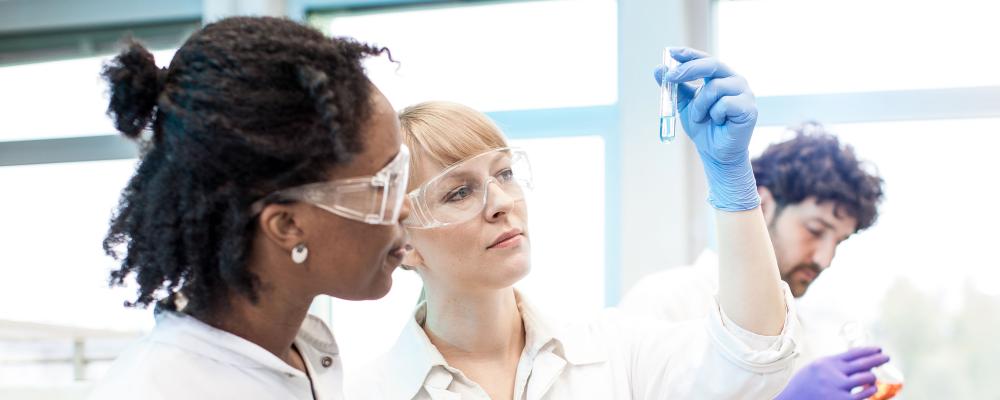Portal Our Laboratories

Swine virology immunology Unit of the Ploufragan-Plouzané-Niort Laboratory
Head of Unit : Gaëlle Simon
Deputy Head of Unit :
The activities of the Swine virology immunology Unit seek to control certain regulated viral diseases in pigs, such as classical swine fever (CSF), African swine fever (ASF) and Aujeszky's disease (AD), as well as viral respiratory syndromes with a major impact on the sector's economy, such as Swine influenza (SI) and porcine respiratory and reproductive syndrome (PRRS). These latter diseases also pose a public health risk due to their zoonotic potential and/or the excessive consumption of antimicrobials on farms associated with the "porcine respiratory disease complex" to which they contribute.
Reference activities
The unit holds four National Reference Laboratory (NRL) mandates for:
- classical swine fever;
- african swine fever;
- aujeszky's disease;
- swine influenza.
The diagnostic activities carried out by the unit as part of its NRL missions are accredited by COFRAC.
It is also World Organisation for Animal Health (OIE) Reference Laboratory for Aujeszky's disease.
In addition, the VIP Unit is recognised as an expert laboratory on PRRS.
Surveillance activities
The VIP Unit contributes to the surveillance actions led by the national epidemiological surveillance platform for animal health (ESA). It takes part in monitoring groups and is heavily involved in schemes such as Résavip, the national surveillance network for swine influenza A viruses. The surveillance data are used to improve and adapt diagnostic tools and provide input for research questions.
Research activities
The unit's research work seeks to identify and understand the risks associated with regulated and unregulated swine viral diseases. The aim is to help control these diseases, both in livestock and in wildlife. The research questions addressed aim to characterise the diversity of domestic and/or wild reservoirs (wild boar, ticks and other blood-sucking animals, etc.); monitor the evolution of viral strains and study the phenotypes of emerging viruses, particularly with regard to their virulence, their ability to escape from vaccine protection and even their zoonotic potential; characterise the interactions between viruses, vectors (as the case may be) and hosts, especially the innate and adaptive post-infectious immune responses; understand the interactions between viral and/or bacterial pathogens within the porcine respiratory disease complex; characterise the dynamics of viral strains in the pig population, taking animal husbandry methods and herd immunity into account; assess airborne transmission and the persistence of viruses in the environment; study the safety and efficacy of vaccines and improve the effectiveness of vaccination protocols.
Main ongoing projects
ASFVInt (2021-2024)
Decoding a virus Achille’s heel: the African swine fever virus interactome
Funding : ERA-NET ICRAD (International coordination of research on infectious animal diseases) European programme and doctoral thesis co-funded by Anses-INRAE.
This project is aiming to identify the mechanisms of interference between the ASF virus and the innate immune response of the host cell.
PIGIE (2021-2024)
Understanding the dynamics and evolution of swine influenza viruses in Europe: relevance for improved intervention and sustainable pig production
Funding : ERA-NET ICRAD European programme
This project is seeking to better understand the dynamics and evolution of swine influenza viruses on European farms affected by persistent influenza, and to assess measures to control the disease.
IGEM (2021-2024)
Influenza infection and training of pig alveolar macrophages
Funding : Doctoral thesis co-funded by Anses-INRAE.
The aim is to determine the medium-term effects of an influenza virus infection of pigs on pulmonary antiviral immunity and its impact on other respiratory viruses: porcine reproductive and respiratory syndrome (PRRS) and porcine respiratory coronavirus.
NEOVACC (2021-2023)
Novel strategies to enhance vaccine immunity in neonatal livestock
Funding: ERA-NET ICRAD European programme
The project's aim is to assess a new vaccination strategy against PRRS in piglets carrying maternal antibodies, combining a modified live vaccine and a DNA vaccine.
IDIMVAC (2018-2022)
Effect of the immunisation route of a live PRRS vaccine on the development of immunity and early protection in pigs
Funding: Anses, veterinary medicinal product company
The objective of this project is to assess the value of modified live vaccine (MLV) vaccination against porcine reproductive and respiratory syndrome (PRRS) via intradermal versus intramuscular administration.
Projects completed
TransPPAVec (2017-2020)
Mechanisms of vector transmission of African swine fever virus and factors influencing this transmission: study of different tick-virus associations
Funding: Doctoral thesis co-funded by ANSES-CIRAD